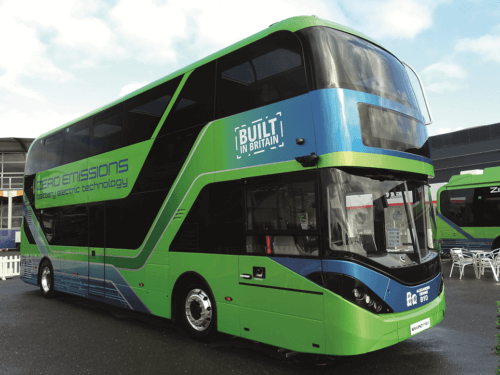RIchard Sharman provides a round-up of the latest news and developments from this year’s ITT Hub event at Farnborough International
It only seems like a blink of an eye since the Innovation and Technology in Transport (ITT Hub) event made its debut at the Farnborough International Exhibition & Conference Centre on 30 June and 1 July 2021, but less than 12 months later it was back. Last Wednesday and Thursday were to be the days that the industry flocked to Surrey to see the very latest in new vehicles and technology.
Whilst overall the show was bigger than last year in some respects, a few manufacturers were very conspicuous by their absence, especially when you consider that the vast majority of vehicle manufactures and bodybuilders were in attendance. One of those was in attendance, but without any coach or bus product. An opportunity to put products in front of a large number of potential customers is always worth it in my opinion, but I guess sometimes the cost of doing so does not always balance up in these pandemic recovery times – although if it scores you a vehicle demonstration with the possibility of a potential order, it may be worth it?
For those who did attend it would appear that is was definitely worth it. Despite the rain on Wednesday the stands were still busy outside and inside the hall. Of note was that there were many conversations going on beyond just the operators; electrification infrastructure providers were in conversation with OEMs and body builders, various government agencies were also in conversation on multiple stands, and many more visitors had flown in for the visit. Of particular note was a contingent from Volgren in Australia for the big Wrightbus announcement.
Despite being in its infancy, the ITT Hub has all the ingredients to see continued success and get bigger each year.

By subscribing you will benefit from:
- Operator & Supplier Profiles
- Face-to-Face Interviews
- Lastest News
- Test Drives and Reviews
- Legal Updates
- Route Focus
- Industry Insider Opinions
- Passenger Perspective
- Vehicle Launches
- and much more!


